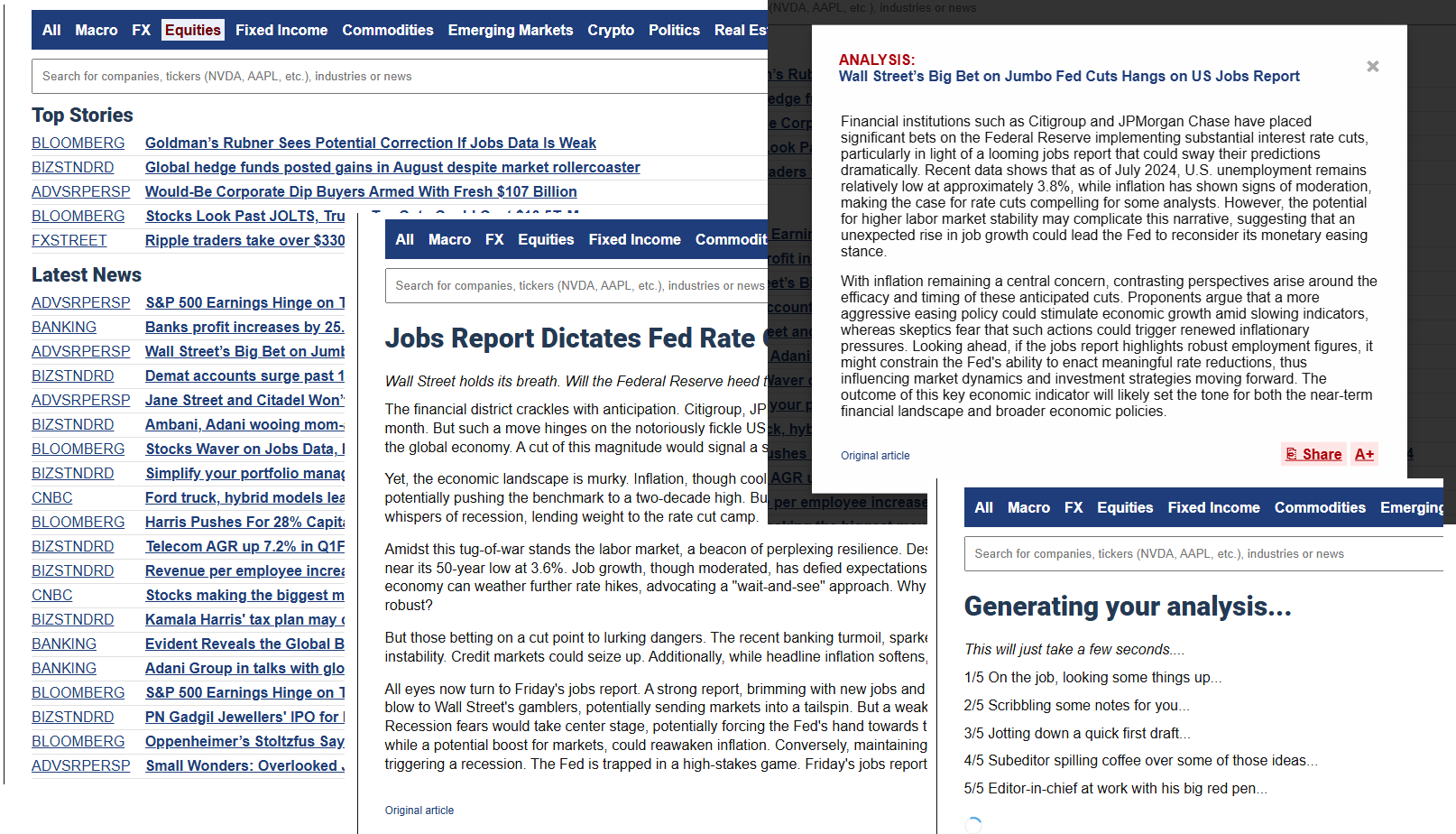Intel Partners with Amazon for Custom AI Chip
Intel’s partnership with Amazon’s AWS to develop a custom AI chip signals a bold step in the embattled chipmaker's resurgence strategy under CEO Pat Gelsinger. This alliance serves as a strategic coup for Intel, which has struggled to lure marquee clients to its foundry business. By aligning with Amazon, Intel aims to leverage Amazon’s expansive market reach and robust technological infrastructure to regain its competitive edge in the rapidly evolving semiconductor industry. The new AI chip, engineered specifically for artificial intelligence computing, stands as the cornerstone of a ‘multiyear, multibillion-dollar framework’ poised to significantly influence future market trajectories. Investor confidence skyrocketed, with Intel shares soaring 8% post-announcement, underscoring strong optimism in Intel’s revitalized growth prospects. This partnership not only marks a triumph for Intel but also offers Amazon a prime opportunity to enhance its AWS capabilities with cutting-edge AI technology. The advancements anticipated from this new chip could streamline Amazon’s operations and provide a critical edge in cloud computing and e-commerce, fortifying its dominance in these sectors. Meanwhile, Amazon CEO Andy Jassy's recent mandate requiring corporate employees to return to the office by January 2025 signifies a notable shift from pandemic-era remote work policies. Jassy maintains that physical office presence bolsters collaboration, innovation, and company culture. However, this decision has sparked debates about employee morale and productivity, particularly in an industry that has largely embraced remote work. Amazon’s return-to-office directive faces resistance from employees accustomed to the flexibility of remote work, potentially leading to higher turnover rates and diminished job satisfaction. In infrastructure-challenged cities like Seattle and San Francisco, this policy change could strain local transportation and real estate, impacting urban economies and escalating operational costs. Proponents argue that an office presence fosters organic collaboration and innovation, which are essential for sustained corporate growth. Beyond the immediate economic implications, the Intel-Amazon partnership could drive significant advancements across various sectors. Intel’s production prowess paired with Amazon’s extensive network could ignite breakthroughs in cloud computing, logistics, retail, and beyond. However, Intel’s delayed plant projects in Germany and Poland raise concerns about the resilience of global supply chains and regional economic outcomes. These delays, while reflecting strategic adaptability, also impact regional development plans. Complicating matters, Amazon’s labor dynamics present another layer of complexity. Responding to union pressures, Amazon recently increased pay for subcontracted delivery drivers to nearly $22 per hour as part of a $2.1 billion investment in its Delivery Service Partner (DSP) program. These measures aim to alleviate burgeoning labor discontent and maintain operational efficiency, yet fall short of broader labor reform demands. Regulatory scrutiny further compounds Amazon's challenges. Ongoing antitrust investigations by the Competition Commission of India (CCI) into allegations of preferential treatment for select sellers underscore Amazon's regulatory hurdles. Potential sanctions and stringent regulations could necessitate operational recalibrations to ensure compliance and fair market practices. Intel also faces substantial challenges as it contends with fierce competition from rivals like AMD and Nvidia. Gelsinger's leadership and strategic vision will be vital in steering Intel toward sustained innovation and market relevance amidst these pressures. While the Amazon partnership represents a significant milestone, Intel's revival hinges on diversified innovations and strategic flexibility. Looking forward, the Intel-Amazon partnership holds promising scenarios. Success could inspire further collaborations among tech giants, accelerating advancements in AI, cloud computing, and other emerging technologies. Conversely, production or integration challenges, or market demand shifts, could temper initial gains, necessitating agile responses from both companies. Amazon's return-to-office mandate may set a precedent for broader corporate trends. If it successfully fosters innovation and cohesion, other tech firms might reconsider remote work policies. However, significant employee pushback could prompt a more flexible approach. In essence, Intel and Amazon’s actions reflect dynamic shifts within the tech industry. Their partnership represents a strategic maneuver towards industry leadership, while Amazon’s assertive management strategies underscore its focus on productivity and corporate culture. As these companies navigate transformative phases, their ability to balance innovation with operational realities will define their trajectories, influencing future corporate norms and technological advancements. The evolving stories at Intel and Amazon highlight the importance of strategic partnerships and adaptive management in an increasingly complex global landscape. By balancing cutting-edge innovation with practical constraints, both companies aim to remain at the forefront of the tech industry, setting benchmarks for their peers and shaping the future of technology and workplace practices.
AI-Powered trading insights: join our email list
Real-Time Market Analysis
Get instant insights on market trends, news impact, and trading opportunities.

